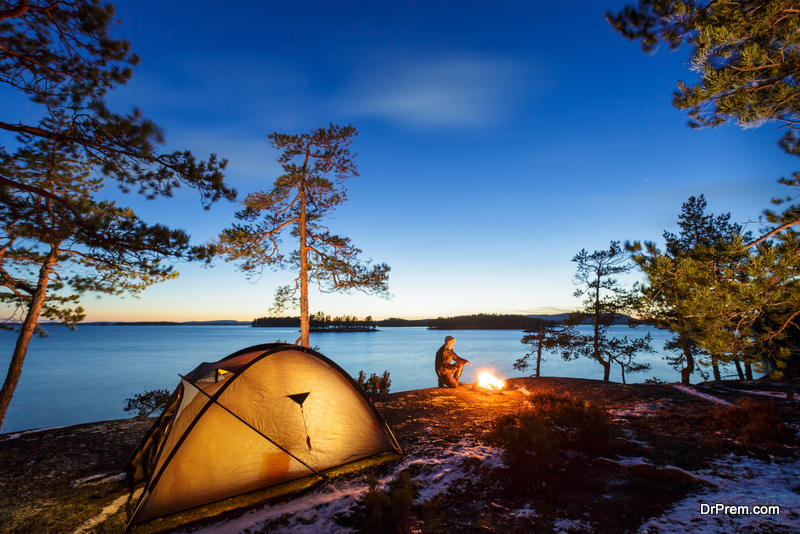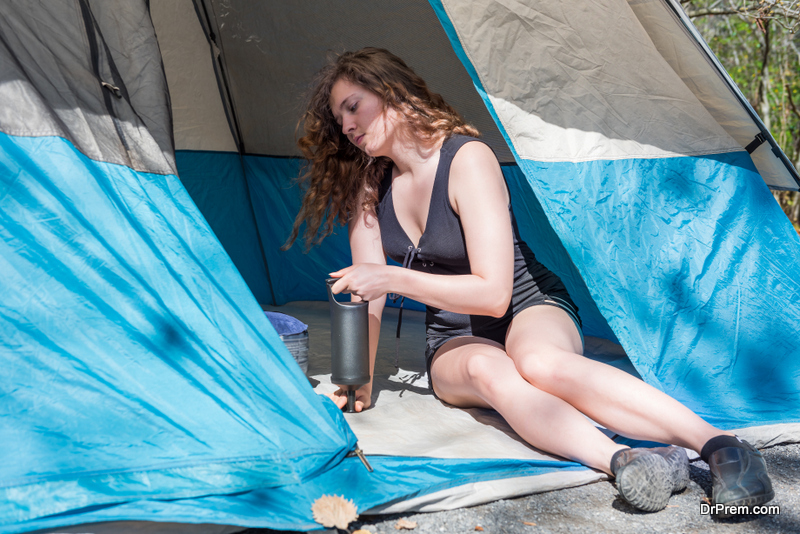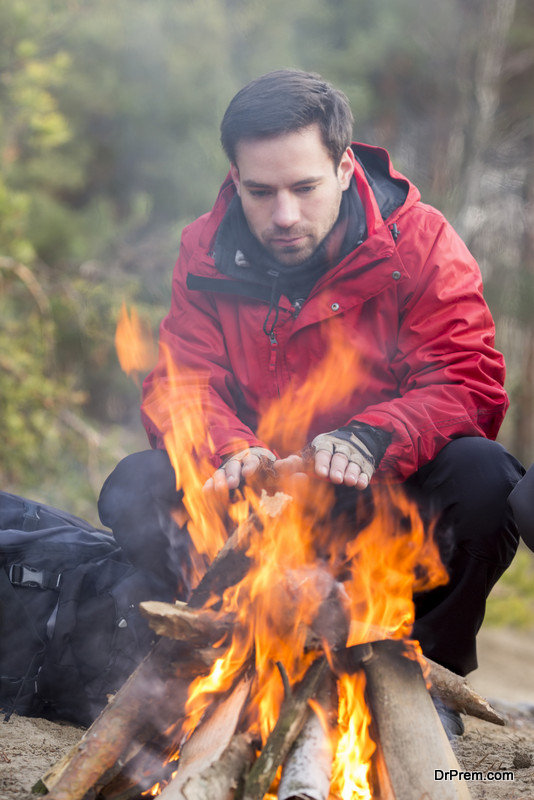Camping is one of the best ways to enjoy the great outdoors, fully immersing yourself in an area far from the reaches of urban civilization. However, if you’re not paying attention, your habits and actions while camping could end up harming the environment even more than your habits and actions in conventional urban or suburban life.
It’s the duty of every camper to camp in a way that respects their natural environment, in the days and weeks leading up to the trip as well as during the trip itself.
1. Come with a Plan
 Don’t camp on a whim, or you might end up making several mistakes, jeopardizing your ability to conduct an environmentally responsible camping trip and making things harder on yourself overall.
Don’t camp on a whim, or you might end up making several mistakes, jeopardizing your ability to conduct an environmentally responsible camping trip and making things harder on yourself overall.
Instead, prepare a checklist of all the items you’re going to need during the trip, and make sure you have a way to carry everything in, like a hitch cargo box or a vehicle with plenty of storage space. The more prepared you are, the more responsible you’ll probably be.
2. Avoid Disposable Goods
Many novice campers are attracted to disposable goods, and disposable goods do make some level of practical sense; they tend to be cheaper than their long-term counterparts, they can be thrown away so they’ll result in less carry weight on your trip back, and they’re usually designed to be portable, making them perfect for use on a hiking trip away from your campsite. However, even if you’re throwing the excess trash away at a designated disposal site, you’re still contributing to industries that result in unnecessary waste. Instead of buying individually bottled water, bring reusable water jugs or another container of potable water. Instead of individually wrapped snacks, consider bringing homemade food in a long-term storage container.
3. Camp Only in Designated Areas
 There are many good reasons to camp only in designated camping areas. Forbidden camping areas are oftentimes closed off for your own safety; they pose some kind of inherent threat to human beings and should be avoided at all costs. Other times, they’re closed off for ecological reasons; this is a protected zone for wildlife or plant life, and excessive human activity could disturb that. The exact reason shouldn’t matter to you and your camping practices; it’s your responsibility as an environment-conscious camper to follow these posted warnings, and only camp where you’re explicitly allowed.
There are many good reasons to camp only in designated camping areas. Forbidden camping areas are oftentimes closed off for your own safety; they pose some kind of inherent threat to human beings and should be avoided at all costs. Other times, they’re closed off for ecological reasons; this is a protected zone for wildlife or plant life, and excessive human activity could disturb that. The exact reason shouldn’t matter to you and your camping practices; it’s your responsibility as an environment-conscious camper to follow these posted warnings, and only camp where you’re explicitly allowed.
4. Watch the Products you’re using (and where you’re using them)
Think carefully about the products you’re using in your new outdoor environment. Many of us like to bring products that help us stay clean or give us a comfort of home, but not all of these are environmentally friendly. Some basic products, like fragrance-free soaps, have a negligible environmental impact, and can be used in moderation. Others are more harmful and shouldn’t be used in a way that could harm your surroundings.
5. Build Campfires Responsibly
This is a major point, and thankfully one that most campers already take seriously. The rules for building and maintaining campfires will vary depending on where you’re camping, but generally, it’s advised that you don’t bring in wood from other forests or areas, for fear of introducing new parasites or microorganisms that could destabilize the environment. Some areas also have restrictions on how you can gather wood from your surroundings (if you can at all). And of course, closely watch and tend the fire so it remains strictly under your control, and only in designated fire pits.
6. Rely on Eco-Friendly Transportation When Possible
You’ll probably have to drive to get to a camping area, but whenever possible during your camping trip, rely on the most eco-friendly mode of transportation available. For example, you might take a compact car with a tent rather than renting a large RV. You might bike or walk to a local shop to get additional supplies, rather than driving back and forth each trip. On a large enough scale, this can have a massive impact.
“Leave Only Footprints, Take Only Memories”
 Attributed to Native American Chief Seattle of the Duwamish Tribe, this quote has been used as a motto by many national- and state-level parks, and is frequently brandished by environmentalists and naturalists alike.
Attributed to Native American Chief Seattle of the Duwamish Tribe, this quote has been used as a motto by many national- and state-level parks, and is frequently brandished by environmentalists and naturalists alike.
There are two sides to this equation. First, leave only footprints; don’t leave anything you brought into a natural environment behind. Your camping equipment, your personal belongings, and even your trash needs to be taken out with you. Second, take only memories; don’t take souvenirs like plants or animals out of the environment unless you have an explicitly encouraged reason to do so, like fishing with a fishing license in a designated area.
If executed responsibly, camping can have next to no impact on the environment. You’ll be able to fully immerse yourself in a natural environment, like a riverbed, a forest, a mountain range, or a desert, and you won’t have to worry about your actions negatively impacting your surroundings.
As you get more experienced with the practice, you’ll be able to minimize your impact and increase your enjoyment even further.
Article Submitted By Community Writer



